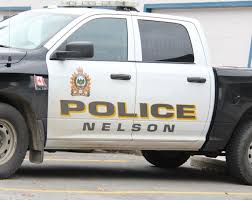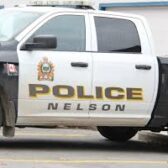Climate change adaptation project to be undertaken through regional district
A new rural-based project under the Climate Action Charter intends to work toward carbon neutrality and climate adaptation strategies in the West Kootenay.
A collaborative research project between the Rural Development Institute (RDI) and Selkirk College, the Rural Climate Adaptation Project is a regional approach to understanding how climate change affects rural communities.
The partnership will make recommendations to the regional district board on policy considerations with regards to climate action and adaptation.
The five priority areas of the study are agriculture, extreme weather, emergency preparedness, flooding, water supply and wildfire.
“The project will work with community indicators to measure the impact of changes in climate on human systems and infrastructure,” said Paris Marshall Smith, the RDCK’s sustainability coordinator, in her report to the board.
For the next two years the project will target three objectives, including identifying municipal “climate vulnerabilities.”
That involves measuring the adaptation progress in six case study municipalities using the “state of climate adaptation and resilience in the Basin” (SoCARB) indicator suite, noted the staff report to the board.
“The SoCARB assesses adaptation actions in relation to climate changes and associated community and environmental impacts,” the report noted.
The case study assessments will generate specific risks each municipality faces, and identify “remaining vulnerabilities” from previous action.
The results from 2013-2018 pilots will be used to create regional perspectives on what the main vulnerabilities are.
The B.C. Climate Action Charter is a voluntary agreement between the B.C. government, Union of B.C. Municipalities and each local government signatory to take action on climate change.
The Charter was launched at the 2007 UBCM Convention and, since then, almost every local government in B.C. — 187 of 190 municipalities, regional districts and the Islands Trust — has signed the Charter.
Under the Charter, local government signatories commit to: becoming carbon neutral in their corporate operations; measuring and reporting their community’s greenhouse gas emissions and; creating complete, compact, more energy efficient communities.
Broadband broadens its brand
Four more locations were added to the Columbia Basin Broadband roster.
Site license agreements were signed by the Columbia Basin Broadband Corporation to install, operate and maintain broadband equipment in Crescent Valley, Passmore, Winlaw and Slocan.
The agreements run for 20 years. Several years ago the Columbia Basin trust found that Basin communities and residents indicated that access to high-speed internet was a priority, giving residents a greater quality of life and helping communities thrive.
The goal of the Columbia Basin Broadband Corp. is to make high-speed internet connectivity available throughout the region.
When it comes to internet service, the words broadband and high-speed essentially mean the same thing, with different broadband services connecting people to the internet in different ways, but all offering high-speed service.
Heritage registry for the RDCK
The regional district’s heritage will be recorded and documented through the Community Heritage Register.
The project’s objective is to compile findings of previous heritage planning in the regional district and add to them over the next year in establishing a Community Heritage Register for the RDCK.
The regional district board approved the RDCK entering into a funding agreement with Heritage BC to research and document properties for the inclusion in register.
Heritage BC will pay a contractor $40,000 for the Regional District of Central Community Heritage Register
The consultant will research and document suitable properties for inclusion in the register.
“The completed register would be comprised of the properties identified in previous heritage context planning processes as well as those brought forth by the community or property owners during the project,” noted a regional district staff report on the register.


























